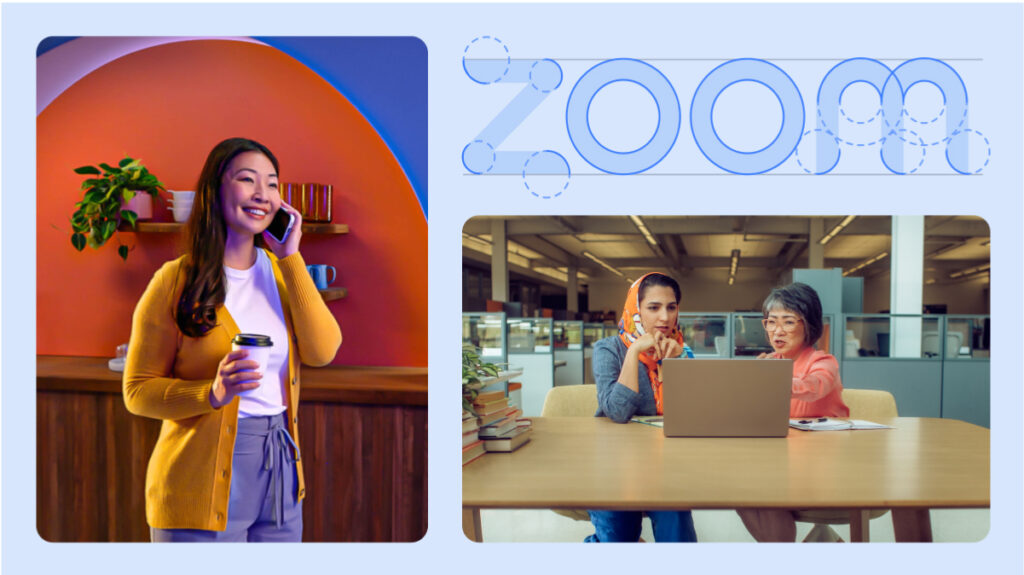Zoom survey reveals hybrid work reigns supreme and delivers unexpected value to global organizations
In partnership with Reworked INSIGHTS, the analysis explores the evolution of the workplace, global trends in workplace flexibility, employee preferences, and the impact of generative AI on the future of work

Today, Zoom, together with Reworked INSIGHTS, announced the results of a survey, titled, “Navigating the Future of Work: Global Perspectives on Hybrid Models and Technology.” Hybrid is emerging as the preferred working style worldwide, with 83% of employees saying that they feel more productive in hybrid/remote environments than in-office/on-site settings. In fact, the value of hybrid extends well beyond the obvious perks of flexibility as hybrid employees say that they feel more connected to their teams/managers (82%).
The value of hybrid work emerges
As organizations align their working styles to meet the needs of their business, customers, and employees, hybrid continues to rise above as the preferred approach—in fact, 64% of leaders said their workplace has currently adopted a hybrid model.
A big part of the conversations around flexible working styles has been productivity—whether employees can be as productive working outside the office as they are in a designated working space. Additionally, 84% of leaders stated that increasing productivity was their top priority when determining the best working style for their company. Fortunately for businesses, the study found that employees find themselves more productive in hybrid settings, with 84% of employees saying they get more work done in a hybrid/remote setting than in-office/onsite. This can be due to many reasons but is a testament to the importance of having the right technology in place to keep the workforce connected, regardless of their physical location.
What may be surprising to leaders is that while 72% of in-person respondents felt very or moderately connected to their manager, even more respondents in the hybrid group (82%) felt the same, showing that feeling connected is not necessarily a function of face-to-face interaction and that relationships can be built and maintained in different working environments.
Don’t get too comfortable: the workplace is still evolving
Even as organizations settle into various hybrid models, 75% of leaders say it’s very or moderately likely that their organization will change its working style in the next two years. Additionally, the survey revealed:
- 82% of leaders plan to make their working styles more flexible in the next two years.
- Leaders overwhelmingly report that over the past two years, their working styles have become more flexible for employees (50% say it’s become much more flexible and 45% say it’s become slightly more flexible).
Building a successful, future-ready workplace requires continuously adapting to employees’ feedback and evolving preferences. Having the right technology in place that can adapt and evolve with the organization at the same time is also a key piece to the puzzle.
Generative AI is a key driver of future workplace success
In order to prepare for the continued evolution of how we work, organizations need to improve their current tech stack. The survey unveiled that employees have clearly observed flaws in their organizations’ digital workplace environments today.
- Most employees (75%) agree that their organization’s current tools and technology for remote work need improvement.
- 72% of employees agree that their organization needs new tools or technologies to support remote working.
Where does generative AI fit in? Ultimately, generative AI is expected to have a great impact on the future of work. Leaders and employees may have slightly different opinions, but both groups accept that this technology is part of the future.
- 94% of leaders use AI in their organizations, and 84% say that integrating AI has positively impacted productivity.
- 64% of employees strongly or slightly agree that “generative AI makes it easier to do my job.”
Regional-specific findings
While the survey highlighted the global trend of workplace flexibility, social and cultural norms also impacted the results.
Western Europe
- 75% of leaders that responded have adopted a hybrid working model.
- 77% of knowledge workers say they get more work done in a hybrid/remote setting than in-office/onsite.
- Whilst Western Europe knowledge workers prefer flexibility, they are also least interested globally in fully remote work – 43% (compared to NA – 56%, APAC – 49%).
APAC
- 58% of organizations have adopted a hybrid working model.
- 83% of employees say they get more work done in a hybrid/remote setting than in-office/onsite
- 81% of employees agree that the tools and technology their organization currently uses for remote work need improving, and 78% also agree that their organization needs new tools or technologies to support remote working.
As hybrid work becomes the dominant model, leaders must embrace flexibility, adapt to employees’ changing preferences, and invest in better workplace technology and AI solutions. This will help them improve productivity and the overall employee experience, and better prepare them for long-term success. With the right strategic foresight, leaders can navigate the complexities of an evolving work environment, strive to build a future-ready workforce, and thrive in this new world of work.
To access the whitepaper, please visit: https://click.zoom.com/navigating-the-future-of-work and to view the infographic, please visit this link. To learn more about Zoom and the ways Zoom helps support flexible, hybrid work models, please visit: https://www.zoom.com/en/products/meeting-rooms/.
Methodology
The Future of Work survey and the IT Leadership survey were global studies conducted by Reworked INSIGHTS on behalf of Zoom. The companies surveyed more than 600 IT and C-suite leaders and nearly 1,900 knowledge workers across the globe, exploring their views on different workplace models, productivity levels across models, the impact of generative AI on work, and other topics related to the future of work. Data was collected online, all questions were required, and results were collected anonymously. Employer Survey dates: April-May 2024; Respondents: 624. Employee Survey dates: April-May 2024; Respondents: 1,870.

Zoom Media Kit
Explore our Media Kit for essential information and resources to help you out.
Learn more



